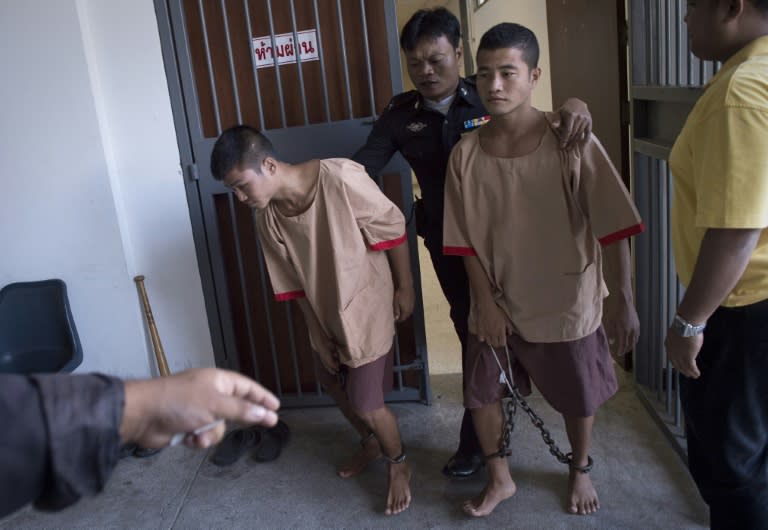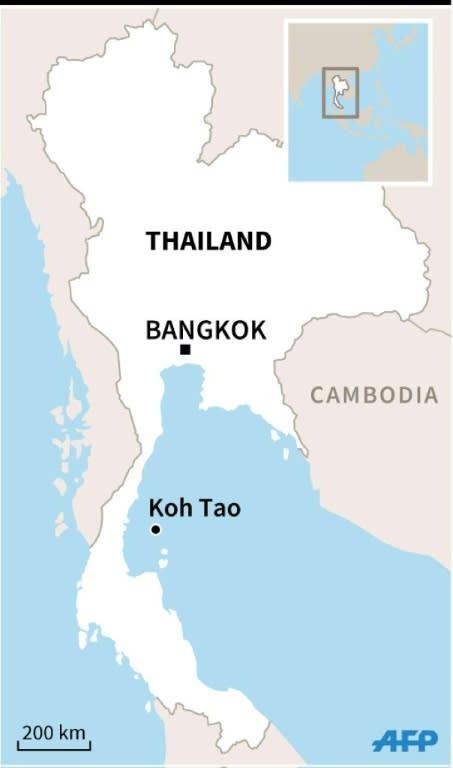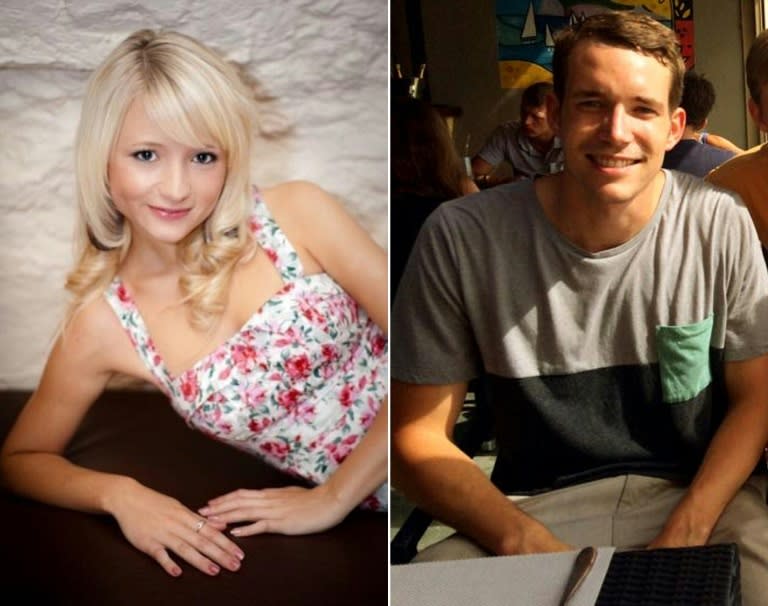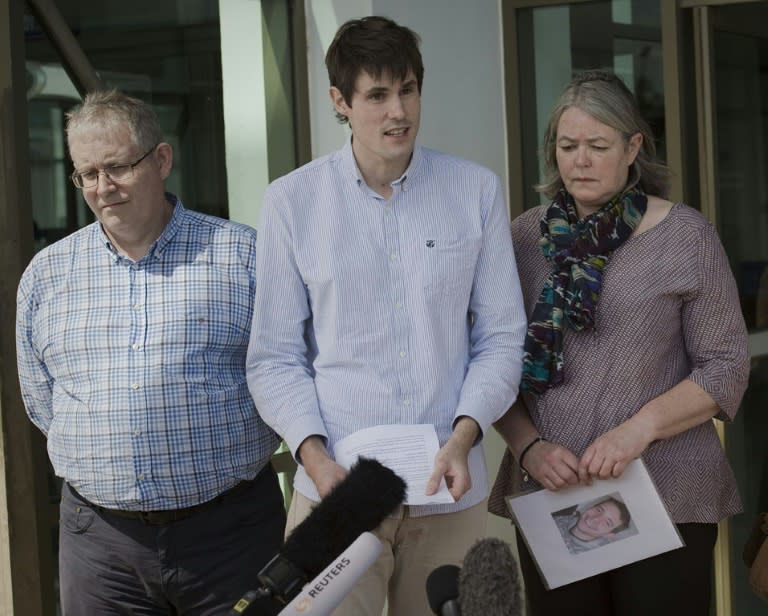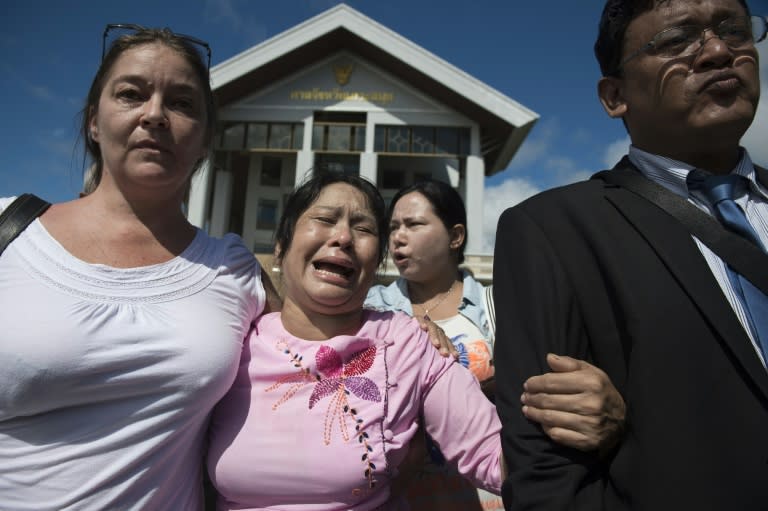Thai court hands Myanmar men death penalty for British tourist murders
Two Myanmar migrants were sentenced to death Thursday for murdering a pair of British holidaymakers on a Thai island, in a case that sullied the kingdom's reputation as a tourist haven and raised questions over its justice system. Zaw Lin and Win Zaw Tun were found guilty of killing David Miller, 24, and the rape and murder of Hannah Witheridge, 23, whose battered bodies were found on a beach on the southern diving resort of Koh Tao in September last year. Delivering the verdict at a court on neighbouring Koh Samui, an unnamed judge said the case pivoted on "DNA evidence from both suspects", citing forensic traces from the accused found on Witheridge's body. Throughout the trial prosecutors insisted their evidence against the men was rock solid. But the defence, who swiftly vowed to appeal, have accused the police of bungling their investigation from the outset and using the migrant men -- both aged 22 -- as scapegoats. Investigators were accused of failing to properly collect and preserve DNA samples and declining to test key pieces of evidence, such as Witheridge's clothes, or allow independent examination of the samples. The migrant workers, who were shackled in court, were grim-faced as the verdict was delivered, while the mother of one of them wailed from the gallery. The men were arrested on October 2 after a high-profile police probe which saw authorities come under intense pressure to solve a case that shocked the Thai public. -- Justice served? -- Miller was struck by a single blow and left to drown in shallow surf while Witheridge was raped and then bludgeoned to death with a garden hoe. Flanked by his parents as he spoke outside the court, Michael Miller -- the brother of the slain David -- said "justice" had been served. "He (David) was hacked down from behind, dragged into the sea and left to die. That will live with us forever. What happened to Hannah Witheridge is unspeakable," he said. "David always stood up for justice and justice is what has been delivered today," he added, endorsing the work of the Thai police and the reliability of the forensic evidence. Witheridge's relatives did not return to Thailand for the verdict. But in a statement released through British police her family said the end of the trial brought a "whirlwind of emotions and difficulties." "Our trips out to Thailand, to attend court, made for particularly distressing experiences... we have had to endure a lot of painful and confusing information," the statement said, adding the family needed time to "digest" the outcome. Throughout the trial the defence disputed the forensic evidence and accused the police of torturing their clients into signing confessions, which they later retracted. Rights groups say the case reflects a wider trend of low-paid migrant workers from neighbouring countries, including Myanmar, being blamed for crimes in Thailand where the justice system is easily bent by wealth and power. The case has also raised concern in neighbouring Myanmar where the two men are widely seen as the victims of a fit-up by Thai authorities. Andy Hall of the Migrant Worker Rights Network and an adviser to the defence team said prosecutors had failed to prove "beyond reasonable doubt" that the men were guilty. "We believe that the evidence presented at court was full of holes, was incompetently collected, and incompetently analysed," he added. The police probe into the horrific murder was dogged by accusations of mishandling. In the hours after the bodies were found, officers failed to seal off the crime scene or close the island's port as police initially appeared to flounder in their quest for the perpetrators. But eventually they arrested and charged Zaw Lin and Win Zaw Tun, also known as Wai Phyo. Within days of their arrest Thai police said the pair had confessed. But the men soon retracted those confessions, insisting they were made under duress, a charge the police deny. Extra police were deployed outside the Thai embassy in Myanmar's commercial capital Yangon on Thursday afternoon, as rumours of a protest at the verdict and death penalty swirled. According to the Thai Corrections Department there are 456 prisoners on death row in Thailand and the last execution was carried out in 2009. The murders stained Thailand's reputation as a tourist haven but did not prompt a lasting fall in visitor numbers in a sector that has remained buoyant despite the nation's history of coups and conflict.

